(Insert obligatory ‘2020 sucked’ joke here)
We get it, 2020 was a bad year, and probably had us all looking exactly like the man in the photo above (okay, got that joke out of my system). We were tested in ways some of us never been before; physically, mentally, emotionally, spiritually, financially, and in-every-way-ally. But if we can take anything away from what we all endured, I would hope that they are traits of optimism, perseverance, and bravery, ready to take on 2021. Coincidentally, many films from 2020 featured stories about people being tested beyond their limits, whether it be in pursuit of the American Dream, confronting our own mortalities, or seeking freedom from injustice; in some cases, these people came out braver and stronger than ever before, and for those who didn’t, well, let’s just say some people deal with pain in their own ways. These films were all about human nature, and while you could arguably say that about films released in any year, surrounding circumstances made that all the more apparent in 2020. It may have led to a cinematic year that felt a little incomplete (with many films delayed until 2021), but if you knew where to look (documentaries and small indies especially), there was still a lot to celebrate artistically.
Episode 413 (Part 2) was our chance to celebrate that great cinematic art, and if you prefer to audibly immerse yourself into those shenanigans, I recommend it for some great and energetic banter among four optimistic film fans. But for something a little more singular and condensed, you’ll find my Top 10 favorite movies of 2020 below.
[divider]
RELATED: Brendan’s Top 10 Movies of 2019
[divider]
10. Nomadland
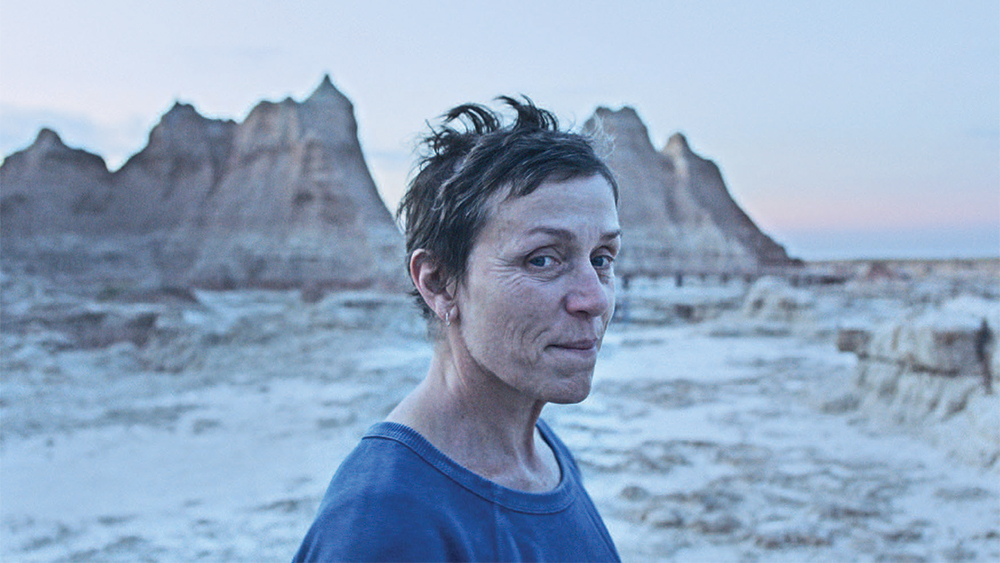
Chloe Zhao (director of The Rider) returns to the contemporary American west, but this time fuses her trademark docudrama approach with something a little more cinematic. The cinematic comes in the form of the ever-so recognizable Frances McDormand; she plays Fern, a nomadic spirit whose van is her source of transportation, as well as her home. It’s a life she chooses, due to tragic circumstances as a result of the Great Recession, and she’s not the only one; on her journey, Fern (the movie character) meets and interacts with real-life nomads who share their experiences, and it leads to some of the best moments of 2020. There’s Bob Wells, the vandweller and community organizer who tells a tale of his dead son, and then there’s Swankie, a woman nearing the end of her life who tells the most beautiful kayaking story you’ll ever hear. Nomadland sees Chloe Zhao slowly transitioning from docudrama to Hollywood; the final results are still somewhat jarring, but the moments in between are too humane to ignore. Click here to listen to our full review.
[divider]
9. The Invisible Man
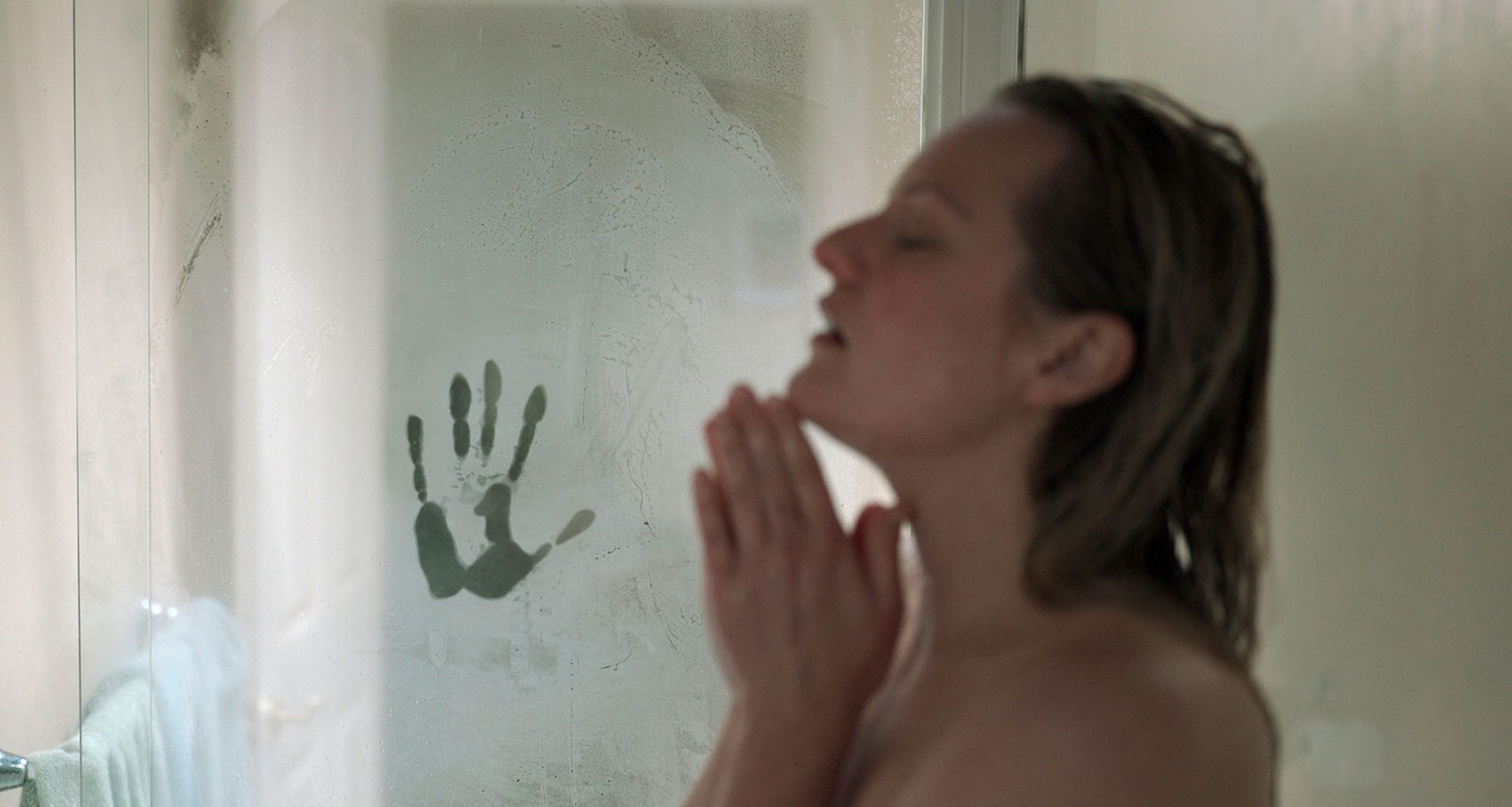
The year’s biggest surprise is also the year’s biggest supporter of genre filmmaking. Leigh Whannell updates (or “upgrades”) both the classic H.G. Wells story and 1933 Universal Monster movie into a surprisingly profound and sophisticated sci-fi horror film, transcending any potential silliness it could have had. The original, directed by James Whale, may have been a classic monster movie, but Whannell’s film is a genuine monster movie, and a provocative and timely one at that, recognizing the monstrosity that is domestic abuse. It all works thanks to Whannell’s delicate handling of its subject matter, but it excels because of the Elisabeth Moss at the center of it all, who is equal parts manic and tragic in her efforts to overthrow her gaslighting threat. It’s always fun when you can make room for a genre film in your Top 10 (especially horror), and that deal was sealed when I revisited the film with my family, and just sat back and watched their reactions during the dreaded restaurant scene, a thing of shocking beauty. Click here to listen to our full review.
[divider]
8. The Forty-Year-Old Version
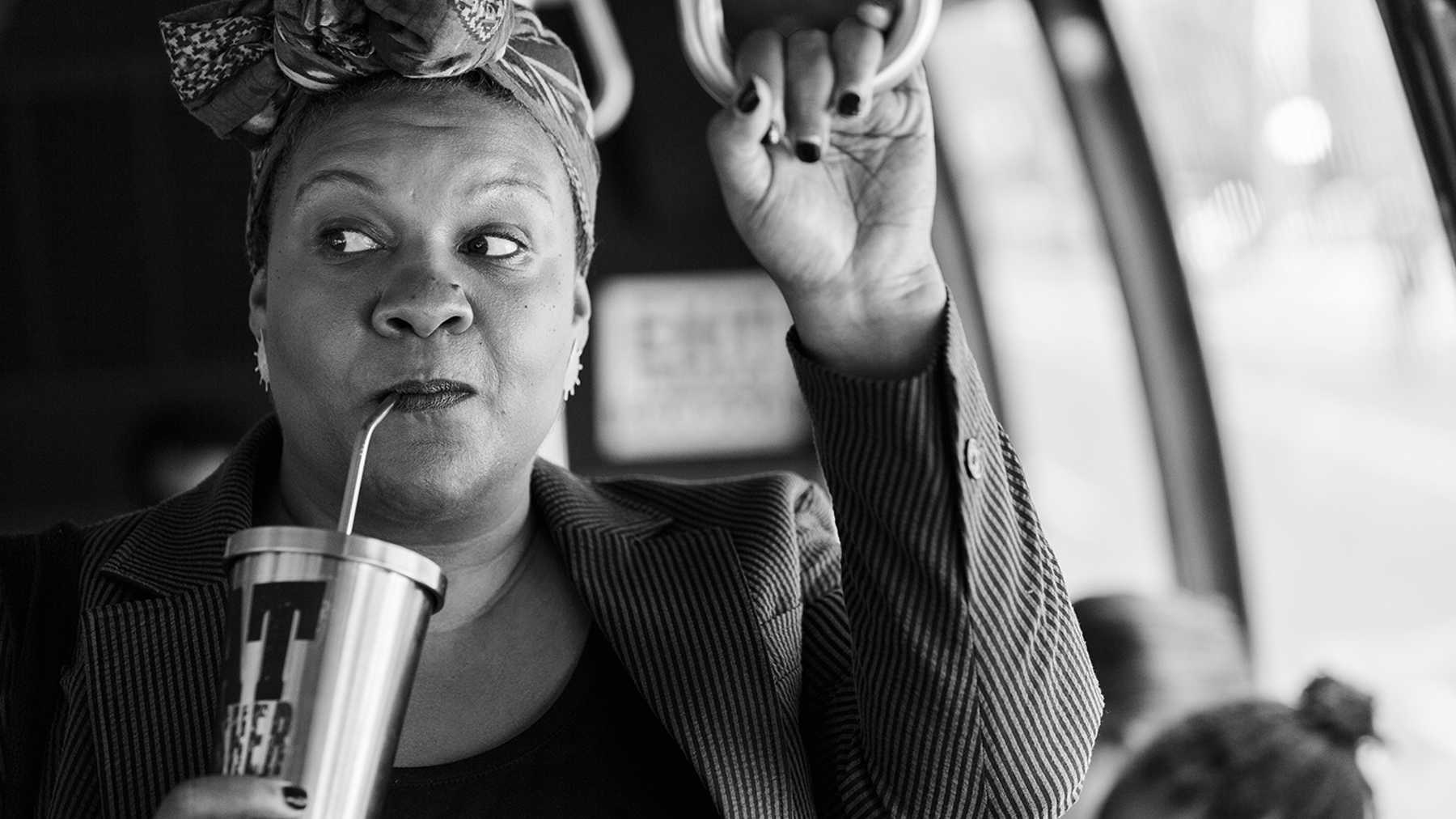
Whether it be film or music (I’m particular fond of Jazz and R&B), Radha Blank’s feature debut made me think about why I enjoy black art. It’s not that I’m not supposed to, but as a white male critic, Blank seems to be asking what draws white audiences to their voices; is it out of genuine interest and desire to understand their culture, or is it merely a reflex to save face? The Forty-Year-Old Version shows people on both sides, and it does so quite successfully; Blank’s portrayal of a woman (and version of herself) caught between sophisticated playwright and profane rapper is emblematic of that duality, and not just a simple case of black identity crisis. I often say that when it comes to movies that handle these types of social themes, I want to see something provocative and challenging, sometimes even showing us things we may not all agree with, and I got that here. I can’t even claim to understand all that Radha Blank has on her mind, and that little fact is what I like the most about the film. Plus, it’s just really funny and entertaining, and features killer hip hop hooks courtesy of Oswin Benjamin and RadhaMUSprime (best rap name ever).
[divider]
7. Wolfwalkers
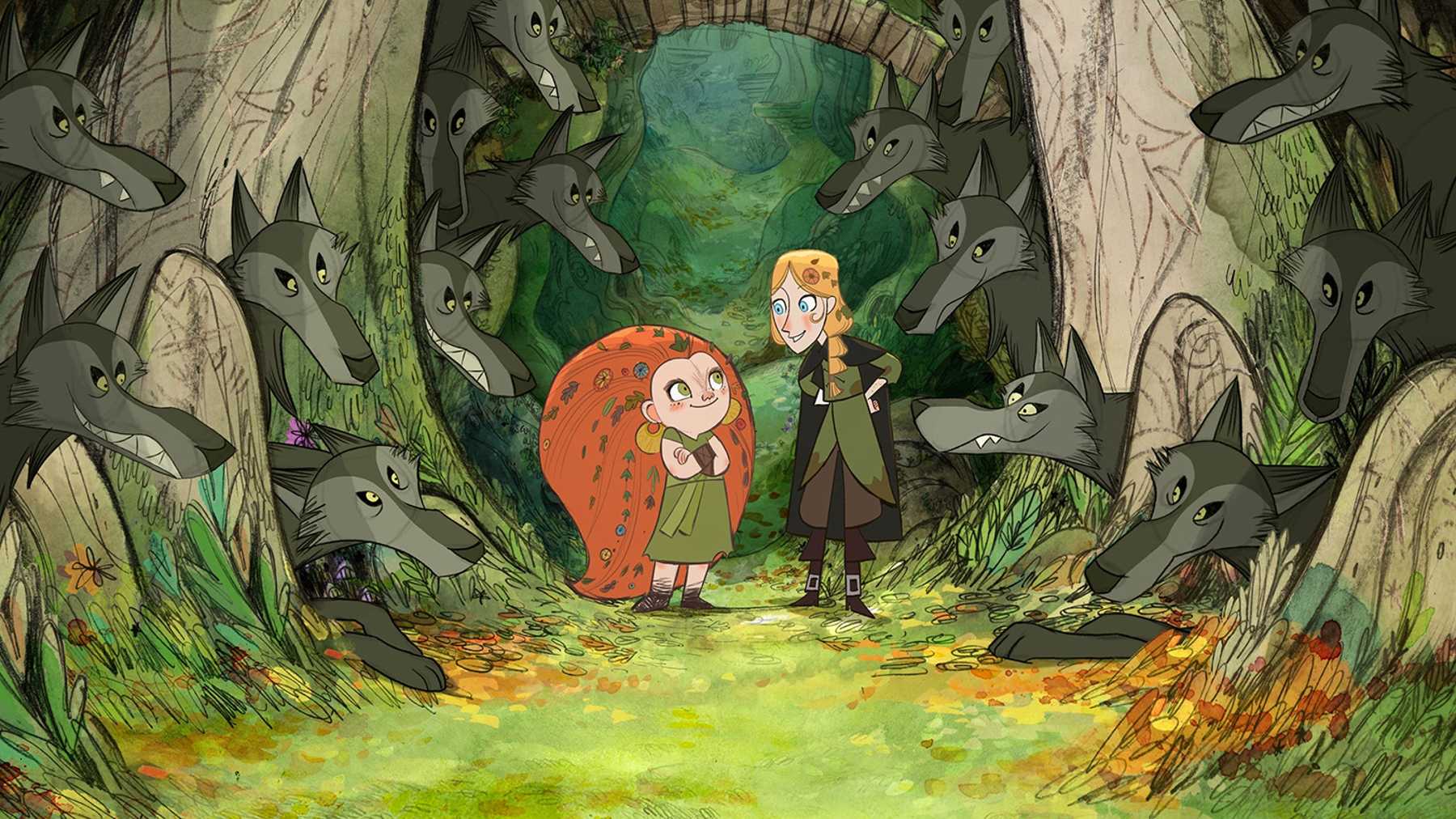
The latest from Irish heavyweights Cartoon Saloon is exactly the type of animated film I look out for every year, in a time cluttered with computer animation. Tomm Moore and Ross Stewart have made an incredibly traditional animated film, employing a traditional hand-drawn style while also telling a more traditional story, one that shares quite a few commonalities with classics like Studio Ghibli’s Princess Mononoke. More importantly, in keeping with Cartoon Saloon’s quest for making stories steeped in heritage (whether it be their own or not), Wolfwalkers is a film ABOUT tradition, using Irish history and myth to tell a universal tale about a friendship formed through a child’s shared love for his/her parents. It’s mythological vibrancy and musicality at its finest, and may have you shouting Aurora’s “Running with the Wolves” for weeks. Click here to listen to our full review.
[divider]
6. Driveways
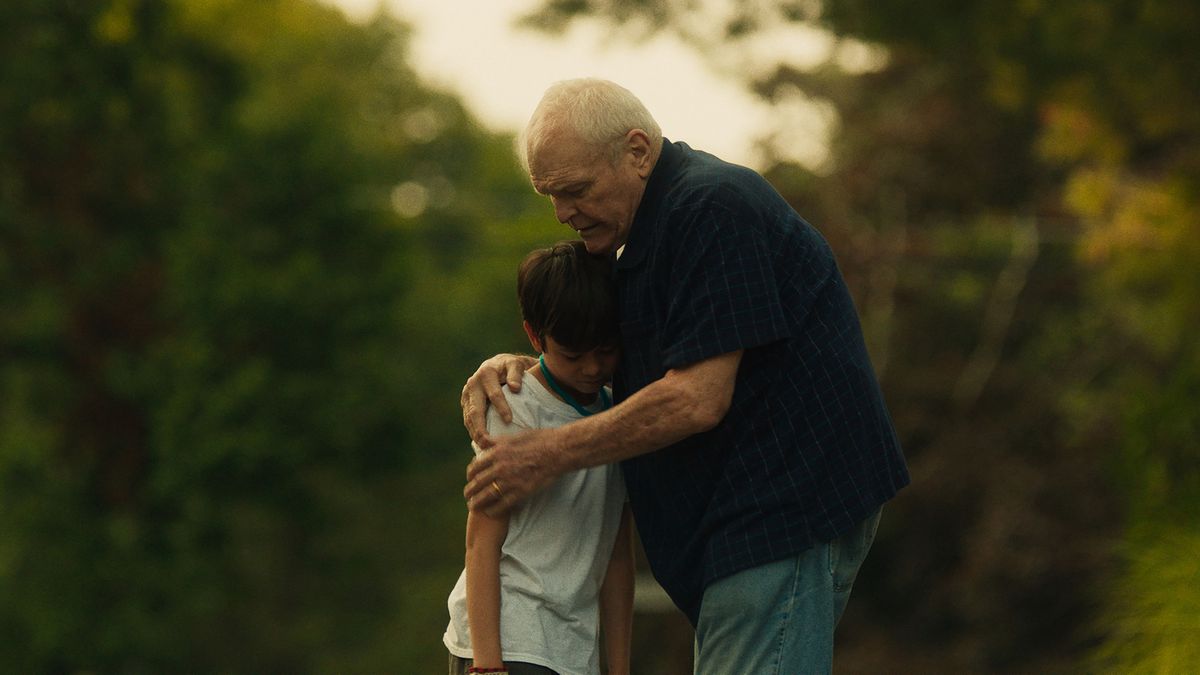
I tend to recoil at the notion of a certain movie being “what we need right now”, especially ones dealing with relevant social themes; but if there is any type of film I think we need more of, it’s one about simple human connection and generosity. This is where Andrew Ahn’s Driveways comes in, to remind us that there is beauty in the mundane (a new favorite subgenre of mine as I get older), and how that mundanity is more important than any grand conflict surrounding it. In fact, there’s almost no conflict in Driveways, and even when we expect Del and Cody’s friendship to hit some kind of snag, Ahn and writers Hannah Bos and Paul Thureen find some way to sidestep it. If there is any conflict, it comes at the end as Del (the late Brian Dennehy, in one of his very best performances) delivers a tear-inducing monologue about being unprepared of your own mortality, a lesson we all need to understand nowadays, including children. Driveways could have easily gone the route of Clint Eastwood’s Gran Torino or Pixar’s Up, and thankfully it never does.
[divider]
5. Lovers Rock
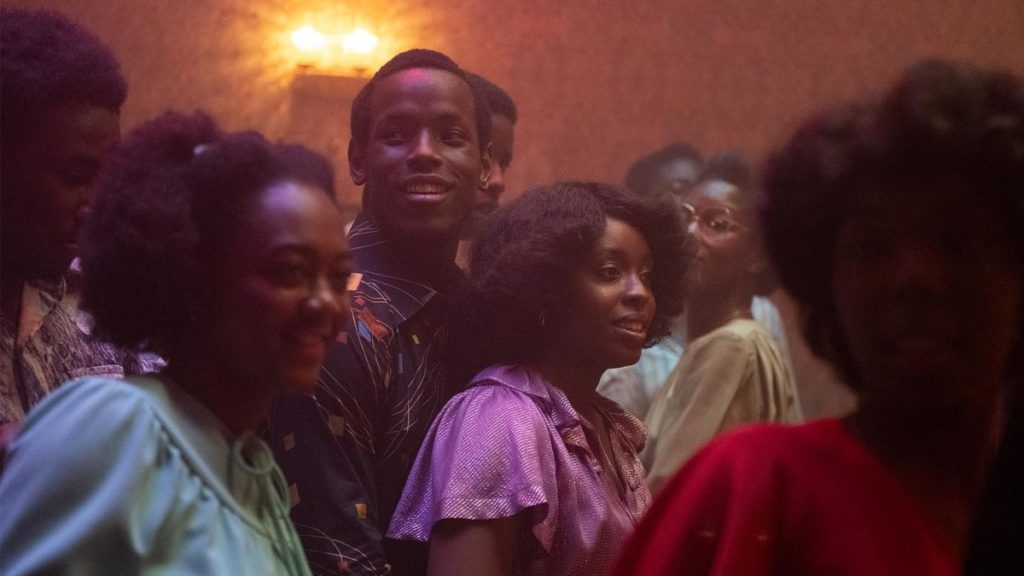
Speaking of movies that deliberately sidestep conflict, that is made most literal in Steve McQueen’s Lovers Rock, the second installment in his Small Axe anthology of five films. While its first installment Mangrove sets the stage for the racial troubles experienced by West Indian immigrants in Notting Hill, Lovers Rock is a depiction of what that community was fighting for – freedom. In this specific case, it’s being free to share your love for your culture, your voice, and your music, emblematic in the film’s title alone (‘lovers rock’ is a style of reggae music known for its more romantic sound and themes). As this blues party unfolds for a short hour, we see people celebrating in perfect unison and harmony (a performance of Janet Kay’s “Silly Games” is particularly jaw-dropping), and by making it as joyous as it is, McQueen shows that desire for togetherness as all-encompassing, regardless of race. McQueen should be commended for his work on all five of the Small Axe films (some are better than others, for sure), but Lovers Rock is the most inviting and beautifully crafted. Click here to listen to our full review.
[divider]
4. Sound of Metal
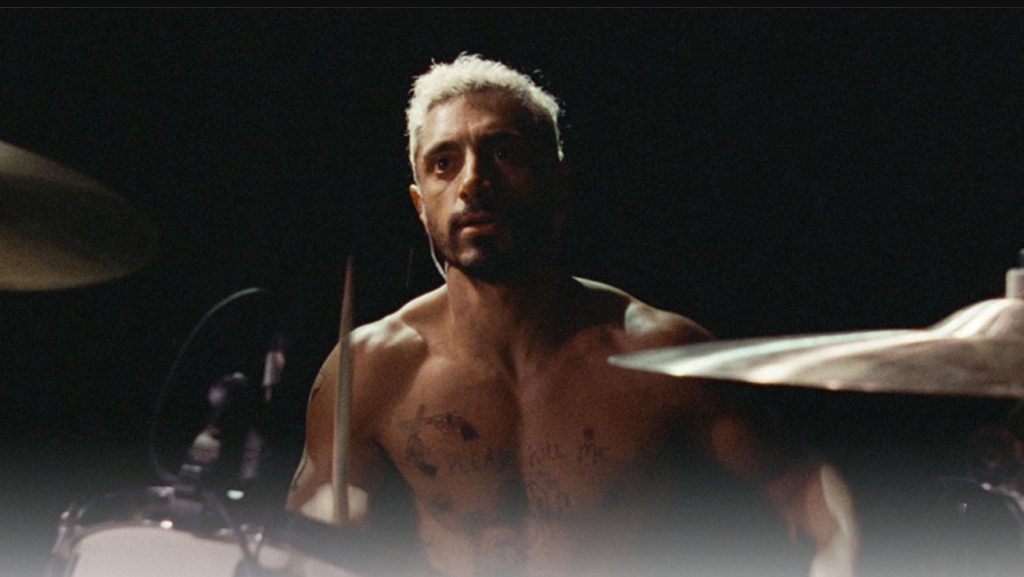
If I just spent two picks talking about movies that sidestep conflict, Darius Marder’s directorial debut instead sidesteps expectations. Sound of Metal takes advantage of our common misconceptions on disability and addiction and treats them with utmost respect and delicacy, adjectives not particularly found in heavy metal music. Marder depicts Ruben’s hearing loss as something to live with rather than overcome, it shows how his relationship with Lou may be more about codependency due to their respective addictions, and even goes as far as to suggest how Ruben’s love for music may be out of necessity (a way to remain clean) rather than something he genuinely enjoys. What the film gets so right is that it’s not about fixing your physical flaws, but fixing your interpretation of those flaws, and that realization from Ruben at the end is beautifully profound, in a sequence we’ll just dub the “You saved my life” scene. Riz Ahmed and Olivia Cooke are fantastic, but a huge shoutout to Paul Raci, who as a real-life interpreter of deaf parents turns Joe into an honest spokesperson for the deaf community. Click here to listen to our full review.
[divider]
3. Minari
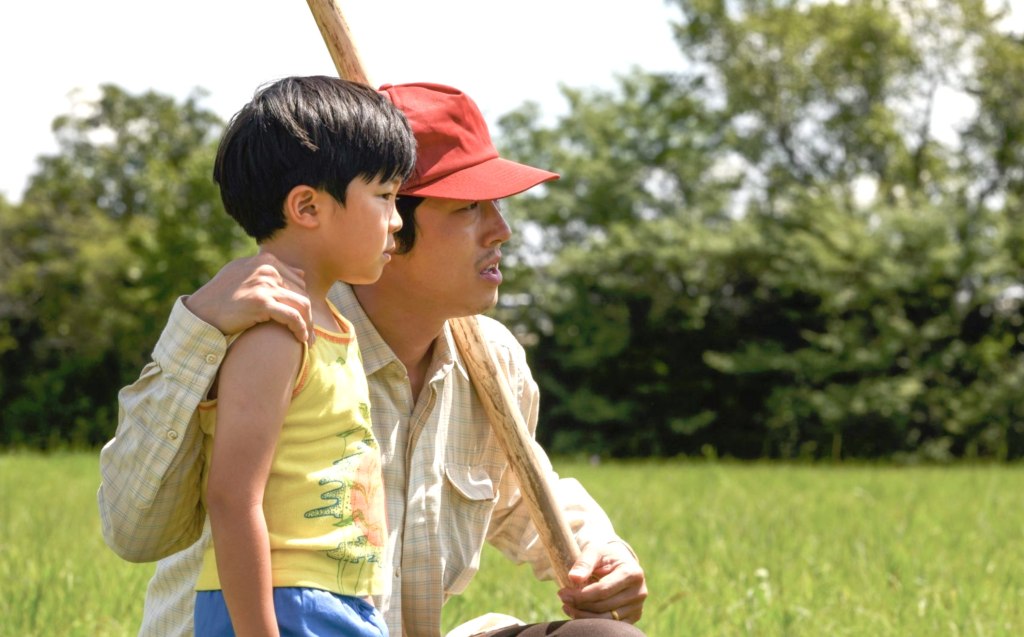
Minari made me want to hug my family. In his most personal film yet, Lee Isaac Chung (who in real life grew up on a farm in Arkansas just like the Yi family in his film) looks at the quest for the American dream from the perspective of a Korean American family (a first, perhaps?) and how familial needs can get lost in favor of financial obligation. It’s a universal notion within a distinctly “American” story, regardless of where Jacob (Steven Yeun) and Monica (Yeri Han) were born, and the arrival of Monica’s mother Soonja (a lovely Youn Yuh-jung) presents a tug-of-war that breaks down cultural barriers. With young Alan Kim at the center of it all (essentially playing a stand-in for Lee Isaac Chung himself), Minari is arguably the most endearing film of the year, and we need more endearing things nowadays. It also made me realize that Mountain Dew is just healthy mountain water; I guess my mom was wrong on that one. Click here to listen to our full review.
[divider]
2. First Cow
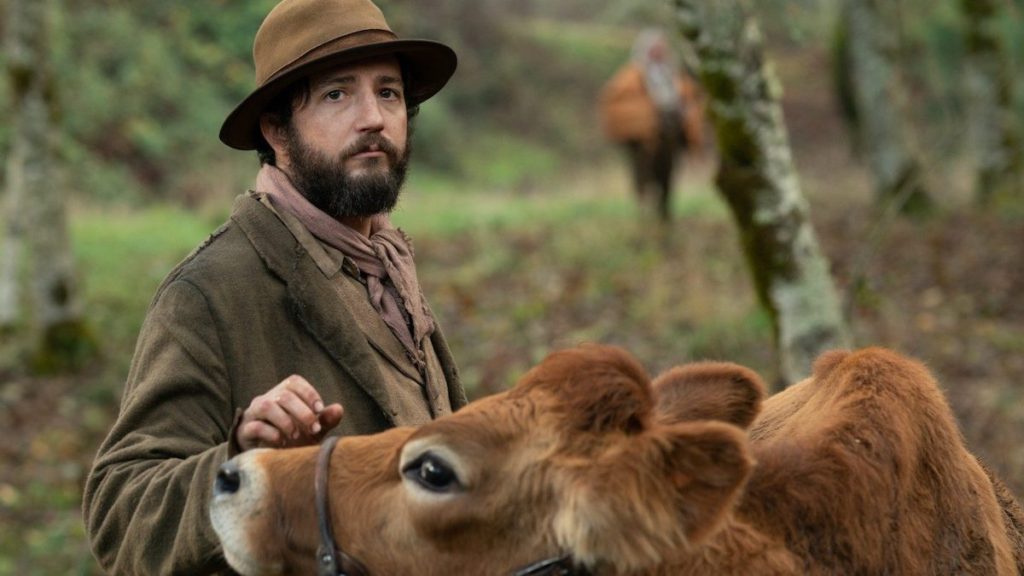
Kelly Reichardt’s First Cow looks at the quest for the American Dream, but at a different point in history than Minari. And yet, much like that film, it remains more interested in the importance of companionship and togetherness. This has become a common staple for Reichardt, whose films are all about companionship seeking prosperity, but the friendship here between Otis/Cookie and King-Lu (John Magaro and Orion Lee respectively) may be her most endearing yet. Their journey is first and foremost a tale of brotherhood, leaving the film’s remaining notions on capitalism and gender roles of the 1800’s in clear view, just without a preachily heavy hand to swing them. If Minari made me want to hug my family, First Cow made me want to call up my closest male friends and bake oily cakes together, and if that recipe doesn’t catch on, it’ll be the second biggest tragedy of 2020. Click here to listen to our full review.
[divider]
1. Dick Johnson Is Dead
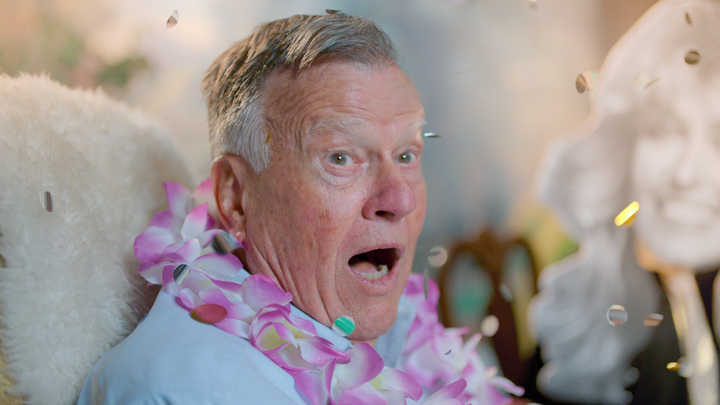
Richard Johnson is my new movie hero. Directed by the titular hero’s own daughter Kirsten Johnson (director of the GREAT Cameraperson), Dick Johnson Is Dead is about bravery and celebration as we confront notions of death and mortality, which we often find as too taboo to talk about. Dick Johnson, in his willingness to play along in creating mock deaths of himself as he slowly succumbs to dementia, completely invalidates those fears in us; death may be inevitable, but that doesn’t mean it must only be a time of mourning, it can also be a time to celebrate the life that was rather than the life that has been lost. Those who can do so come out braver and stronger, and what better time than 2020 to learn that lesson, after a pandemic came in and pushed our mortalities to the highest limits. Dick Johnson Is Dead is just as sad as it is uplifting and hopeful, but also weirdly funny and inventive, in the multiple ways Kirsten kills off her father; one involving a construction nail to the neck swung by a 2×4 had me in stitches. Documentaries are slowly becoming the most creative form of filmmaking, with Dick Johnson Is Dead being the year’s most prime example of where the medium can go. Click here to listen to our full review.
Rounding out my Top 20, here is the rest of my list:
11) Bloody Nose, Empty Pockets
12) Babyteeth
13) David Byrne’s American Utopia
14) I’m Thinking of Ending Things
15) Another Round
16) The Truffle Hunters
17) Shirley
18) The Painter and the Thief
19) She Dies Tomorrow
20) Zappa
Let us know what you think. Do you agree or disagree? We’d like to know why. Leave a comment in the comment section below or tweet us @InSessionFilm. Or follow me directly @BrendanJCassidy.
To hear us discuss our InSession Film Awards and our Top 10 Best Movies of 2020, subscribe to us on iTunes, Stitcher, Soundcloud or you can listen below.
Part 1
Part 2
Download MP3
InSession Film Podcast – Episode 413 (Part 1)
InSession Film Podcast – Episode 413 (Part 2)





